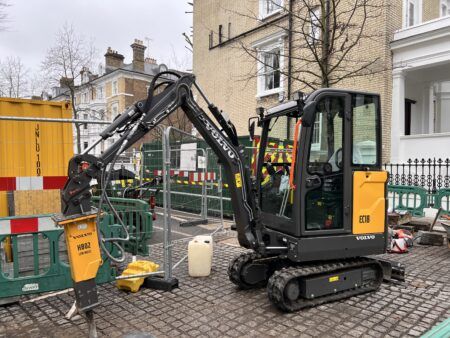London Mayor Sadiq Khan has launched a new network of rapid charge points for electric vehicles (EVs) in a bid to improve the UK capital’s air quality, by helping phase out the use of diesel and encouraging the use of zero-emission vehicles (ZEVs).
As of this year no more diesel taxis are being licensed, and all taxis that are registered for the first time need to be zero-emission capable. Over the past six months Transport for London (TfL) has worked with suppliers on the installation of 100 rapid charge points across the capital where a vehicle can be charged in 20 to 30 minutes, compared to the seven or eight hours it takes at regular charging points.
The network includes 51 points for use by taxis and is part of a scheme to help thousands of London’s cab drivers switch to cleaner EVs by 2020, which is a fundamental part of the government’s Air Quality plan. Taxis are a significant contributor to the city’s poor air quality and are responsible for 16% of NOx and 31% of particulate matter (PM2.5) emissions in central London. A greener fleet could reduce harmful NOx emissions from taxis by 45% in central London by 2020.
The mayor is also encouraging more Londoners to switch to EVs for personal use, as well as businesses, and is committed to working with the private sector to expand charging infrastructure in the capital. The number of EVs in London currently stands at 10% of the UK total.
Alongside around 2,000 standard charge points already installed across the city, at least 150 TfL-funded rapid charge points are set to be in place by the end of 2018, in addition to new infrastructure in residential neighborhoods.
Last April, TfL appointed five suppliers to fund, maintain, operate and install the new rapid charging network across London. Offering 24/7 support and online information on locations and availability, the network allows drivers to use all points regardless of the supplier and pay by credit/debit card.
“The roll-out of rapid charging points marks a big step forward in the shift to zero-emission vehicles, which the capital desperately needs to clean up our toxic air,” said Khan. “But widespread change will not happen until a sufficient charging infrastructure is in place, allowing taxi drivers, businesses and Londoners to easily make the switch.”
Lilli Matson, TfL’s director of transport strategy, said, “The installation of an extensive rapid charge point network is central to enabling cabbies to ditch their dirty diesel vehicles and replace them with green alternatives.”




